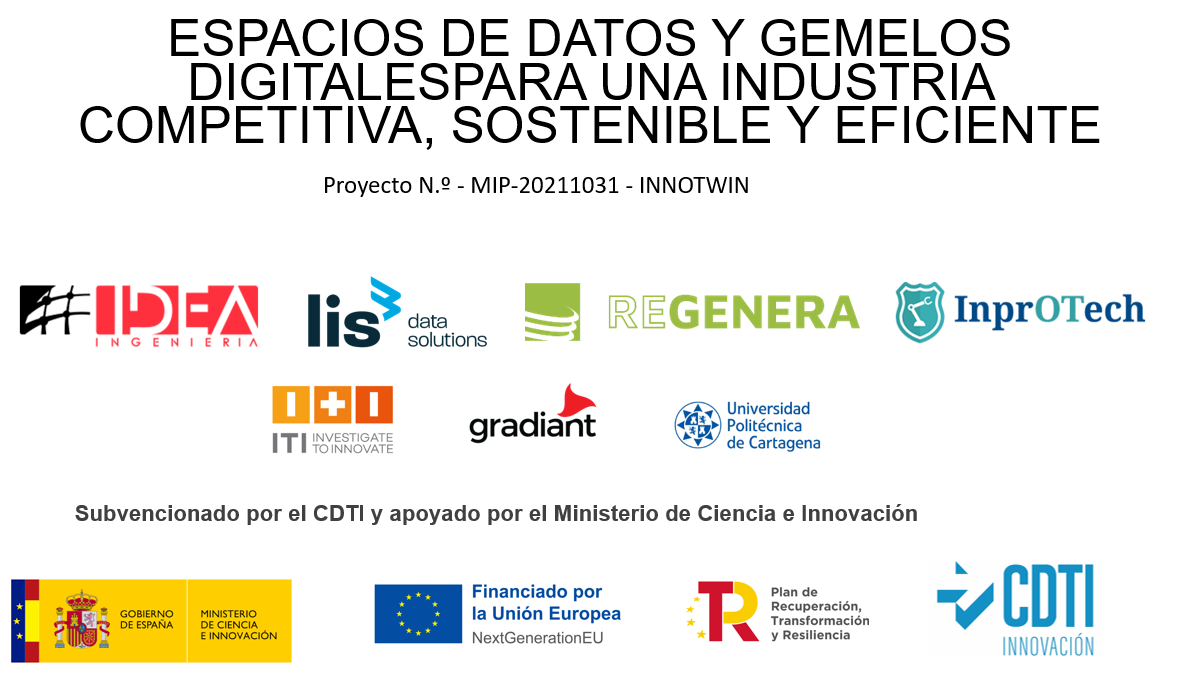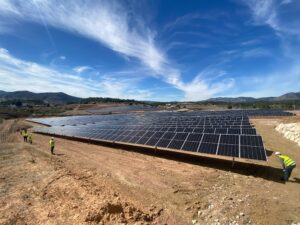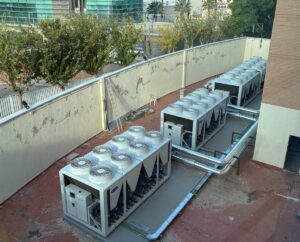SOFC4GreenGrID
Solid Oxide Fuel Cell Research and Development
The SOFC4GreenGrID project has focused particularly on the development and integration of solid oxide fuel cells (SOFCs) for powering green hydrogen-based microgrids. These green energy cells have proven to be a safe, reliable and efficient energy source.
Solid Oxide Fuel Cells
Solid oxide fuel cells (SOFCs) have a solid oxide-based electrolyte as their main component. They can operate at temperatures between 800-1000°C, and have shown great versatility in the use of fuels including hydrogen and hydrocarbons. Solid oxide fuel cells can be categorised according to their components into polymeric (PEMFC), alkaline (AFC), molten carbonate (MCFC), solid oxide (SOFC), and phosphoric acid (PAFC) fuel cells. The electricity generation stage in these cells is based primarily on the anode and cathode electrodes.
Fuel Cell Based Cogeneration Development
The SOFC4GreenGrID project is part of the mission to strengthen technological capabilities for sustainable energy autonomy (fusion, hydrogen and renewables). It is based on the research and industrial development of green energy storage technologies, specifically on solid oxide fuel cells (hereinafter SOFC), which enable the chemical energy of green hydrogen to be converted into electricity.
The tasks proposed by SOFC4GreenGrID allow the application of innovative technologies (green hydrogen, SOFC systems) and their efficient integration for the development of a new SOFC system of up to 50 kW for the conversion of green hydrogen to electricity, in an efficient, ecological, sustainable and highly innovative way. It will have a highly positive effect on the competitiveness, efficiency and reduction of the environmental impact of both the companies that form the consortium and a wide variety of productive sectors.
The results of SOFC4GreenGrID will be the basis for further research into technologies aimed at developments that will improve sustainable energy autonomy in general and, more specifically, for SOFC and similar battery technology (e.g. SOEC-type high-temperature electrolysers).
This is a great advantage not only for the companies that develop these technologies, but also a cross-cutting improvement for all companies that will be end users of these technologies in order to carry out projects in a more sustainable way.
It is therefore a strategic project in cooperation between 'SMEs' that aims to develop a reference project in the sector that defines the basis and application requirements for this type of products.
Contribution to the Project
The consortium consists of one medium-sized company and three small companies with extensive experience to carry out the project activities and is therefore balanced.
The project is led by INGENIERÍA Y DISEÑO ESTRUCTURAL AVANZADO, SL (IDEA), specialised in BIM in the industrial, Oil & Gas, Mining, Energy and Architectural sectors.
REGENERA LEVANTE, SL (REGENERA), dedicated to the development of integral solutions to increase the energy efficiency of installations.
REGENERA LEVANTE, SL (REGENERA) is dedicated to the development of comprehensive solutions to increase energy efficiency in installations.
And finally GREEN GROUPING ENERGÍA S.L. (GGE) being its main activity renewable energies, hydrogen technologies and fuel cells.
In addition, Research Organisations, Technology Centres and Universities will be involved, which will be key to achieving the degree of innovation proposed in the project.
The proposed entities in question are: Centro Nacional De Energías Renovables (CENER). Complutense University of Madrid (UCM). Instituto de Nanociencia y Materiales de Aragón-CSIC (INMA-CSIC) and Universidad CEU San Pablo (CEU).
To this end, the project partners will carry out research into innovative materials and manufacturing methods. The materials will be based on naturally occurring elements that substantially reduce production costs. As well as developing new designs and assembling marketable prototypes of SOFC systems, which benefit from previous research to achieve exceptional electrical efficiency.
This will enable the future large-scale commercialisation of an innovative device for the production of clean electricity from green hydrogen. It will have a major cross-cutting impact on the sustainability and innovation of all industries, which will be the end users of hydrogen. As well as a substantial improvement in the industrial value chain of green hydrogen and its energy potential.
Fuel Cells and their Importance
Fuel cells are a clean energy source that are significantly more efficient than other combustion systems. Their application ranges from domestic electricity generation for microgrids, to transport systems such as cars and air vehicles. This is due to the availability of autonomous fuels, over and above fossil fuels, which ensures lower emissions of pollutants and significant energy savings.
Conclusions
The SOFC4GreenGrID project is a significant effort in the development of green and sustainable systems by working with clean technology. It is contributing significantly to the decrease of emissions of polluting products, and allowing the inclusion of clean and renewable energies in the energy market. All this, based on the development of such a clean and emission-free technology as solid oxide fuel cells, will open up a new market focused on green hydrogen and SOFCs as viable alternatives aimed at increasing energy efficiency with low environmental impact. The development of the proposed objectives will be carried out through two Industrial Research activities. One of them will focus on the development of innovative materials. The other will focus on research into substantial improvements in the performance of SOFC cells and stacks. The developments in these technological areas will be integrated in three Experimental Development activities. They are focused on design, prototyping, integration and experimental validation (TRL5- 6) in a relevant environment of the productive industry, demonstrating the applicability and exploitability of the same.SOFC4GreenGrID is scheduled to start on 1 October 2022, with an estimated duration of 27 months, until 31 December 2024. The budget amounts to a total of €2,835,691.
Funded by the European Union through Next Generation EU funds, under the CDTI Missions program.




